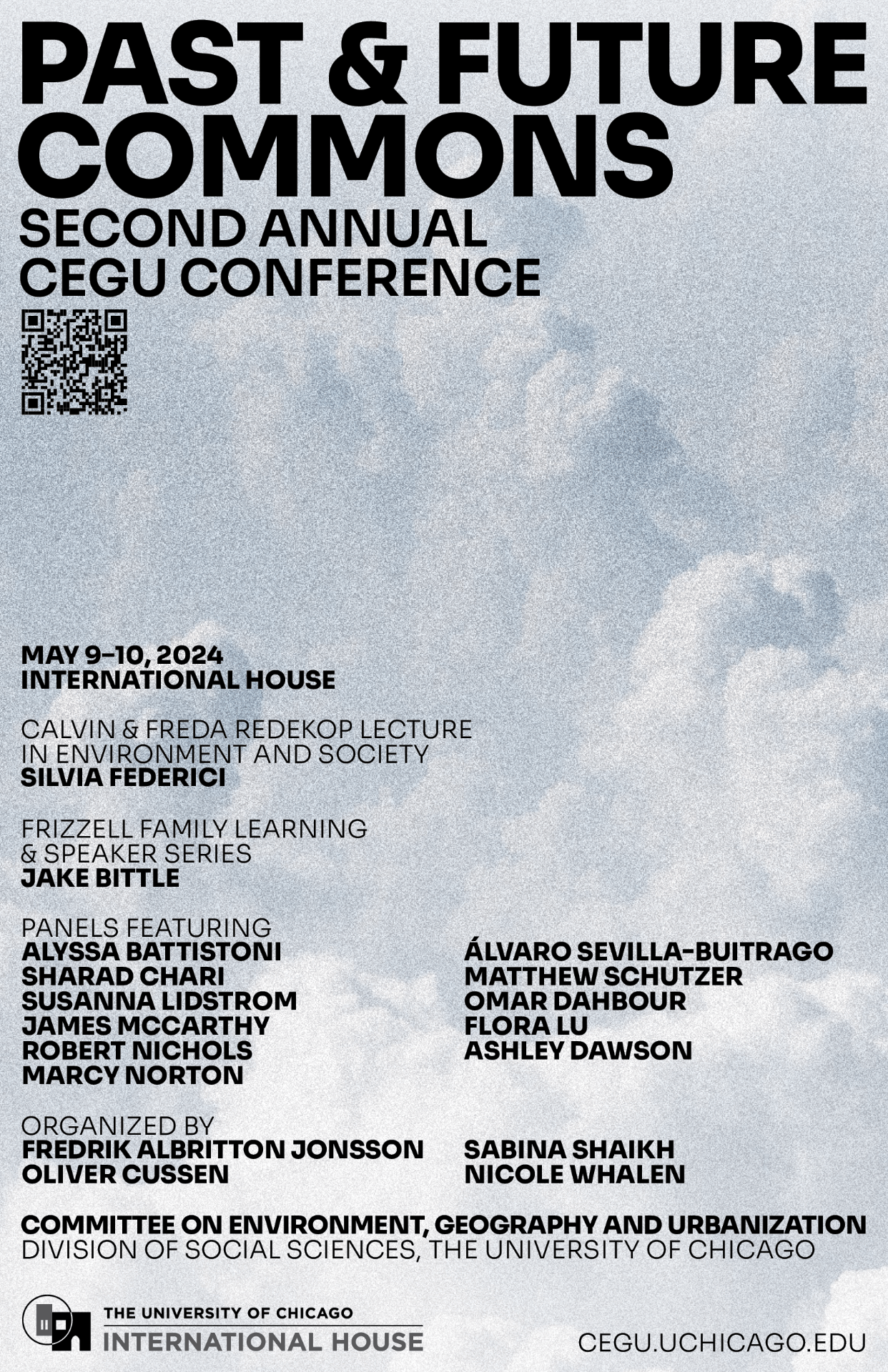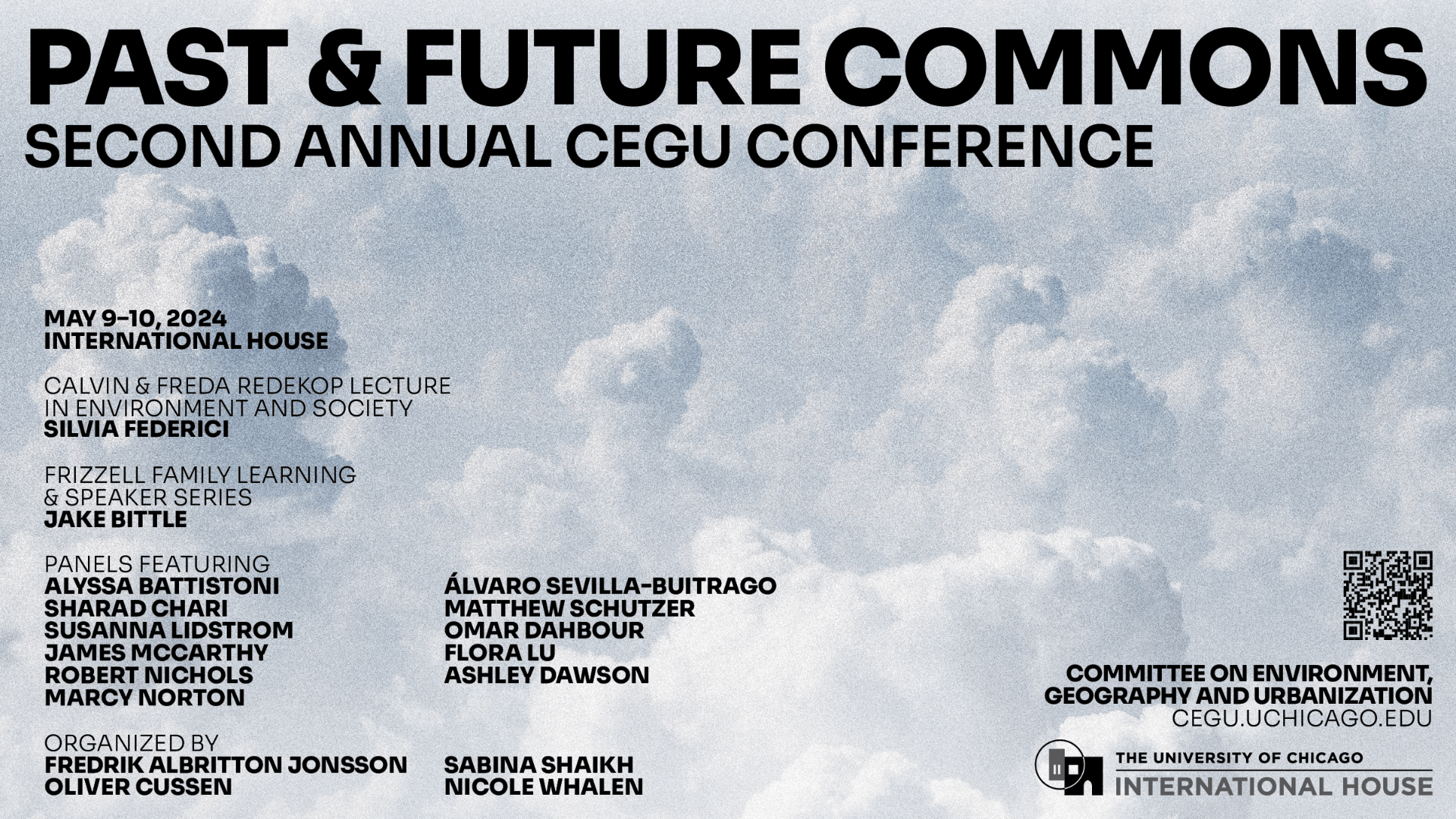Second Annual Conference, Committee on Environment, Geography and Urbanization (CEGU)
Division of Social Sciences, The University of Chicago
May 9–10, 2024 | International House
Register↗
Second Annual Conference, Committee on Environment, Geography and Urbanization (CEGU)
Division of Social Sciences, The University of Chicago
May 9–10, 2024
International House
Register↗
Panel Discussion
Political Commons
Moderated by Nicole Whalen
Friday, May 10, 2024, 1:45–3:15pm
International House
Toward a Political Theory of the Commons?
Omar Dahbour, Hunter College
I will discuss 4 points: (1) differences between land-based social movements (which aim at common property regimes) & other (class- or identity-based) social movements; (2) reasons for dismissal of the commons in ancient/early modern political thought; (3) ideas from some late modern theorists that can be used for a commons-based politics; (4) some concepts that are necessary for a political theory of the commons.
Landback: Indigenous Sovereignty and the Fight to Decolonize Conservation
Ashley Dawson, City University of New York
What is an environmental commons? Is it a space where nature is preserved in a pristine form, with no human intervention? Would the presence of humans in such landscapes inevitably lead to their degradation and ultimate destruction? This was the presumption behind Garrett Hardin’s famous essay on the tragedy of the commons, and it also underlies the model of the “protected area,” a model exemplified in the US’s national park system and its underlying settler colonial dichotomy between wilderness and civilization. With the official adoption of the goal of 30×30 (30 percent of the planet to be designated as formal protected areas by 2030), the United Nations biodiversity conferences propose a breathtaking global expansion of this model of the environmental commons. In this presentation, I will argue that this model of the environmental commons is fatally flawed, and that decolonial activists should not only resist what is effectively a form of neocolonial conservation but should also back the Indigenous landback movement as an alternative.
Exclosure: A Predicament of Modern Power
Robert Nichols, University of Minnesota

